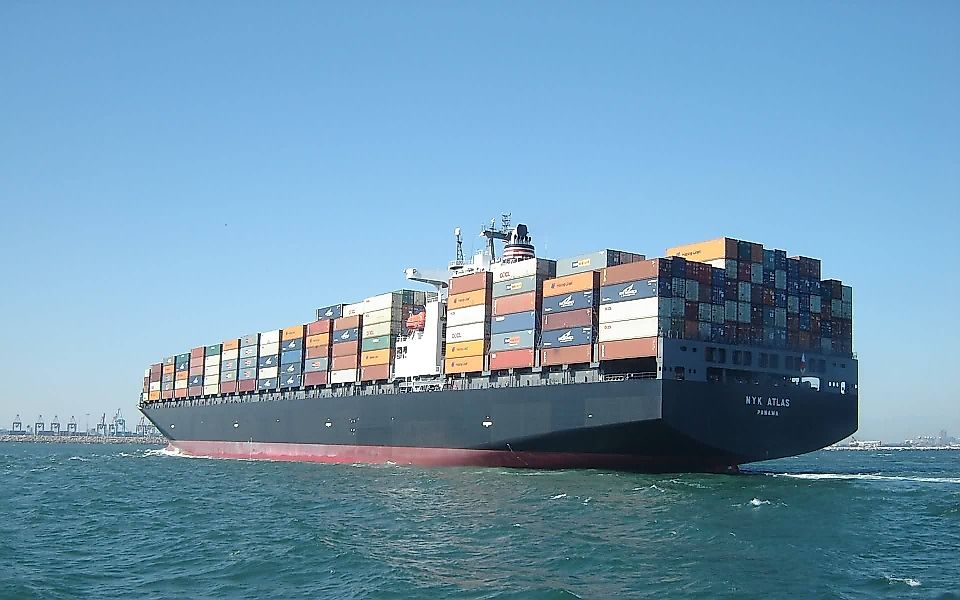10 Countries With The Longest Wait Times For Imports

International trade involves exchanging goods and products across borders and is regulated by governments and international organizations. Trade contributes greatly to the national gross domestic product, not to mention its importance in social and political spheres. Thus the ease with which countries can export and receive imports is crucial to economic development. Unfortunately for some countries, import times are excruciatingly slow and add to product costs. The majority of these countries are located in Africa, followed by Central Asia, the Middle East, and Latin America. This article takes a look at a few of the nations with the slowest import receiving times.
The Longest Import Times
The longest import wait time on the list is 130 calendar days or just over four months! In South Sudan, importing goods requires the proper completion of 12 separate documents. Part of the explanation for this inefficiency is that South Sudan is new; it seceded from Sudan in 2011. The country still lacks formal institutions, infrastructure, and administrative skills. The GDP in 2011 was a mere $1,111. These long import times add to the costs of goods which are then passed on to consumers. One example is food imports. South Sudan imports a major volume of its food resources and due to many cost increasing factors, the cost of food also increased leaving many families unable to meet their food needs.
Following on the list is the first Central Asian country, Uzbekistan. This country has managed to reduce its import times to 104 days, however, that it still longer than three months of waiting time. With such a high lead time (time from port to the purchaser), the Uzbekistan economy faces significant business loss.
Next is Afghanistan, the first Middle Eastern country on the list. It has a three-month import receiving time at 91 days. This country imports machinery, food, textiles, and petroleum products. After this, Chad is the next country on the list at 90 days and then Iraq at 82 days of lead time.
With the same import time as Iraq, Venezuela is the only Latin American country on the list. As is common in the developing world (and Latin America in particular), bureaucratic paperwork takes up a lot of unnecessary time and involves standing in lines and collecting stamps of approval and signatures on everything. Currently, Venezuela is experiencing an extreme economic depression which was brought on by increases in poverty and inflation, a currency devaluation (which makes the country more competitive in the export market but is bad for imports), and consequently a shortage of basic, imported household goods.
The remaining countries are all in Africa and Central Asia. They are Kyrgyzstan (73 days), Zimbabwe (71 days), Tajikistan (70 days), and Central African Republic (68 days). While these times are significantly less than the slowest country (South Sudan), they are still longer than two months and in no way represent an efficient trades system.
Importance of Reducing Lead Times
Imports are a crucial component to economic development although they have the potential to negatively affect the economy. This fact is true particularly if imports exceed exports or if import costs are too high. All the countries mentioned here are developing nations, and would benefit from decreased import times. To achieve this, perhaps these countries should consider negotiating free trade agreements with major trade partners, reducing bureaucratic paperwork, or increasing internal staff in trade institutions.
10 Countries Where It Takes The Longest Time To Receive Imports
| Rank | Country | time to import in calendar days |
|---|---|---|
| 1 | South Sudan | 130 days |
| 2 | Uzbekistan | 104 days |
| 3 | Afghanistan | 91 days |
| 4 | Chad | 90 days |
| 5 | Iraq | 82 days |
| 6 | Venezuela | 82 days |
| 7 | Kyrgyzstan | 73 days |
| 8 | Zimbabwe | 71 days |
| 9 | Tajikistan | 70 days |
| 10 | Central African Republic | 68 days |











